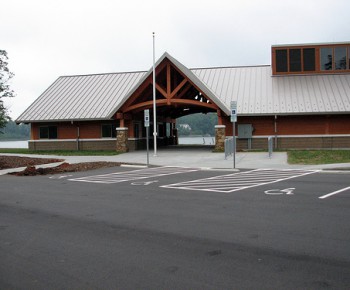
North Carolina’s Fair Housing Act is mostly the same as federal law. The one notable difference is that the federal exemption for sale or lease of an owner’s single-family home is much narrower in North Carolina, essentially prohibiting discrimination in sales (though not leases) where federal law would allow it. In addition, there are local and city-level fair housing laws and agencies, some of which (Charlotte/Mecklenburg, Durham, Greensboro, Orange County, and Winston-Salem) have the authority to investigate, process, and enforce claims under In the remaining counties, local offices will forward complaints to the state office or the HUD.
Who do I contact if my accessible parking rights are infringed in Pennsylvania?
If your landlord or employer isn’t providing enough accessible parking, we encourage you to use the form letters on our Resources page to request that they add more. This is usually the first step in straightening out any accessible parking problem.
Most of the localities mentioned above have online forms for filing housing complaints. The NC Human Relations Commission handles complaints at the state level, and provides a form for initiating fair housing complaints. The form cannot be submitted online, and it may be best to contact their offices in person or by phone when initiating your complaint. Complaints must be filed within one year of the discriminatory incident, and the Commission will begin investigating your complaint within 30 days of filing. They may ask both parties to provide documents, witnesses, and evidence.
If they do not find reasonable grounds for a complaint, they will dismiss your claim and provide you with information regarding your rights to assert the claim as a lawsuit. Otherwise, they will attempt to bring about a settlement between you and your housing provider through a conciliation process. If conciliation fails, you may request a letter explaining your right to sue the other party in civil court, or allow the process to advance to an administrative proceeding. An administrative judge will conduct a hearing and issue a recommendation to the Commission, resulting in a final decision.
North Carolina has a variety of local-level enforcement agencies, such as those listed here, and an excellent resource for legal information and assistance at the Fair Housing Project, a creation of Legal Aid of North Carolina.
The information contained in these pages is for informational purposes only, and it’s no substitute for legal counsel.
